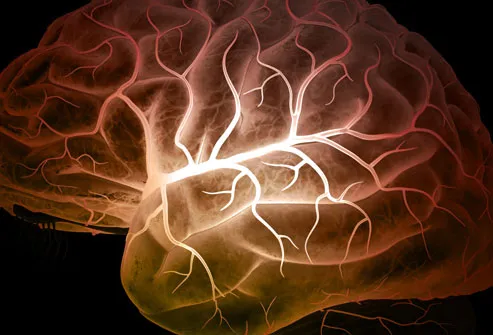From High to Crash: How Cocaine Destroys the Human Body

Cocaine has a mysterious appeal. Regarded as “the caviar of street drugs,” cocaine is seen as the high status drug of celebrities, fashion models and Wall Street bankers.
Cocaine can be snorted, injected and even smoked, but in all cases it produces the same result: an intense high due to the stimulation of the brain’s processing of dopamine.
Producing a euphoric effect and hyperstimulation, cocaine has been an elicit way for those in the banking and media business to keep up with clients, parties and long hours.
But the drug has its negative effects on the body, damaging everything from the heart to the brain to emotions.
Here’s what cocaine does to your body:
Cocaine sparks euphoria and heightens your senses.

Deep in the brain, cocaine interferes with the neurotransmitters that nerves use to communicate with each other. By blocking these from being reabsorbed, the resulting chemical buildup causes the “high.”
It triggers the part of your brain responsible for addictive behavior.

Repeated cocaine use has been found to result in a hyper-responsive dopamine system, making the drug hard for the brain to ignore. Cocaine users report that they are never able to achieve the “high” they felt the first time that they used the drug.
Cocaine increases your heart rate and blood pressure while constricting blood supply.

A restriction of blood flow to the heart causes tissue disease and can result in chest pain and heart attacks. Cocaine can also trigger a deadly abnormal heart rhythm called arrhythmia.
It alters your metabolism, leading to weight loss.

The widespread assumption that cocaine stifles users’ appetites has been proven wrong thanks to new research from the University of Cambridge. The study found that taking cocaine prevents the body from story fat leading to the slimming effects.
Cocaine causes seizures and can lead to bizarre or violent behavior.

The drug constricts blood vessels in the brain, which can cause strokes. The lack of blood flow can result in wild mood swings.
It depletes the protein that triggers pleasure and leads to depression.

Chronic cocaine users run a higher risk of depression as the dependency of the drug leads to faster withdrawal symptoms (depression, anxiety and fatigue). A 2009 study by the Ann Arbor VA Medical Center and the University of Michigan found that the drug, over time, shrinks the levels of VMAT2, the protein responsible for making dopamine in the brain.
It enhances sex and then destroys your drive.

Although cocaine is known for being an aphrodisiac, it actually may make you less able to perform. Chronic cocaine use can impair sexual function in both men and women.
Cocaine destroys the inside of your nose and causes respiratory problems.

Cocaine is toxic to the nasal tissue it passes through, and regular use can cause nasal perforation. When snorted, cocaine can cause redness and a runny nose. Smoking crack cocaine irritates the lungs and, in some cases, can lead to permanent lung damage.
It makes you experience “bugs” crawling under your skin.

Some cocaine users experience unpleasant crawling feelings under their skin as they are withdrawing from cocaine. Referred to as “cocaine bugs” or “snow bugs”, they are described to bite, creep, burn or itch, and users may scratch their skin until it bleeds.
It overheats your body.

Regular cocaine users might experience sudden bouts of profuse sweating as their body temperature rises dramatically. This can lead to agitation, paranoia and even hallucinations.
Cocaine produces a powerful high that can last anywhere between 30 minutes to two hours. But as it travels through the blood, it affects the whole body. According to WebMD, cocaine is responsible for more U.S. emergency room visits than any other illegal drug.
